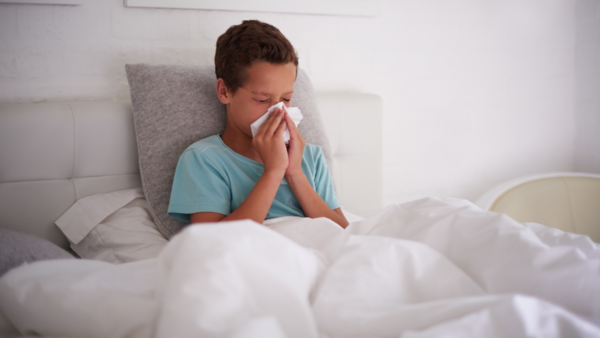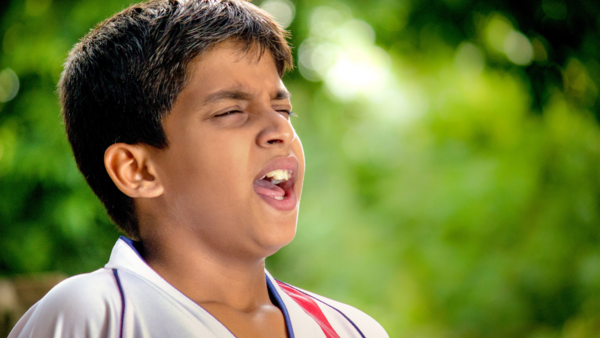Infection
How to protect kids from breathing infections and respiratory illness
When it comes to their kids, parents have endless concerns – whether it’s about school, eating right, or even about their child’s health during every seasonal change. One possible threat to their health is the rising number of respiratory illnesses in India. Parents always want what’s best for their little ones – so, to give you less reasons to worry about such infections, you should be updated on evidence-based information so you can identify signs of a respiratory infection and take action, if required.
Especially as we near the upcoming festive season, which means friends and family visiting, larger social gatherings, and more, there is a chance of infections spreading more easily. This makes it all the more important to be cautious and look after yourself and your family’s health while enjoying the festivities.
A respiratory tract infection affects parts of your body involved in breathing – including the mouth, nose, sinuses, throat, larynx (voice box), trachea (windpipe), airways, and lungs. It can be caused by a virus, bacteria, or parasite, with various infections spreading throughout the year. It’s important to find out whether the infection is bacterial or viral, as this gives the doctor critical information and guides your treatment plan, so you or your child can feel better sooner.
Types of respiratory problems

Here are some facts you should know about respiratory infections – first, there are two types: upper and lower RTIs. The upper RTIs can affect your throat and sinuses, leading to common cold, sinus infection, tonsilitis, and laryngitis. Meanwhile, lower RTIs bother your airways and lungs – think pneumonia, chest infection, bronchitis, bronchiolitis, and more. When it comes to bacterial infections, S. Pneumoniae and H. Influenzae type B (HIB) are the most common. With more children getting vaccinated for these bacterial infections, cases of community acquired pneumonia have thankfully dropped, but viral respiratory infections continue to be a concern for children.
Here’s what the experts say
Dr. Nishtha Malik, Medical Affairs Manager at Abbott said, “Even a common cough or cold can lead to serious complications when one’s lower respiratory tract is affected. Given this, it is vital that people take special care to be vigilant and avoid further illness. This also makes it especially important for doctors to follow the ‘test and treat’ approach, which supports evidence-based therapy while tackling antimicrobial resistance. Any respiratory infection signs in children or adults shouldn’t be ignored. Testing is a key step to identify which prevalent infection the individual is affected by, so a parent can ensure they or their children get appropriate care.”
Dr. Agam Vora, Chest Physician & Medical Director, Vora Clinic, Mumbai said, “India has witnessed a rise in reports of respiratory tract infections over the last year. This poses a burden on the lives of people of all ages, particularly children, the elderly, and those with health conditions. Knowing the signs and testing to identify the type of infection are important steps to take informed decisions for better care. This can help quickly place people on the path of recovery, as they isolate, and curb further spread of disease.”
Staying on guard for respiratory infections
To identify respiratory infections early, keep an eye out for critical symptoms. Whether one’s child is complaining of a sore or scratchy throat, a headache or body ache, having a high temperature, showing signs of fatigue or shortness of breath and wheezing, or coughing – these are indicators that parents must watch out for. In case of such signs – or if someone a family member has been in close contact with has symptoms or an infection – children and parents should consult a doctor, and get tested where appropriate. Some tests are indicated to detect infections only in adults, which makes it vital for parents to get screened when they have symptoms. They can thus identify the specific infection, seek treatment, and take care of their child as well.
A timely and accurate diagnosis in consultation with your doctor is important. This can help you worry less and spend more time in recovery – as you isolate or help your child isolate from others.

Taking precautions to avoid falling ill
To protect yourselves and your kids from illness, there are some key steps you can take. Practice good hygiene habits, and teach your children these steps, too. These include covering your mouth when you cough or sneeze, washing your hands regularly, and using a sanitizer. In especially crowded settings, consider masking up as well.
Maintaining good health with a proper diet and exercise is also important. Consuming the right amount and type of foods – including lean protein, a variety of fruits and vegetables, whole grains, and dairy can help. Since everyone has different nutritional requirements, find nourishing meal plans for you and your children. You should also watch the temperature. Sudden temperature fluctuations can affect people, so try not to keep your room too cold. To stay warm and well-hydrated, seek soothing drink options like hot herbal teas, soups, and more.
10 yoga asanas and poses to improve mental health in kids

